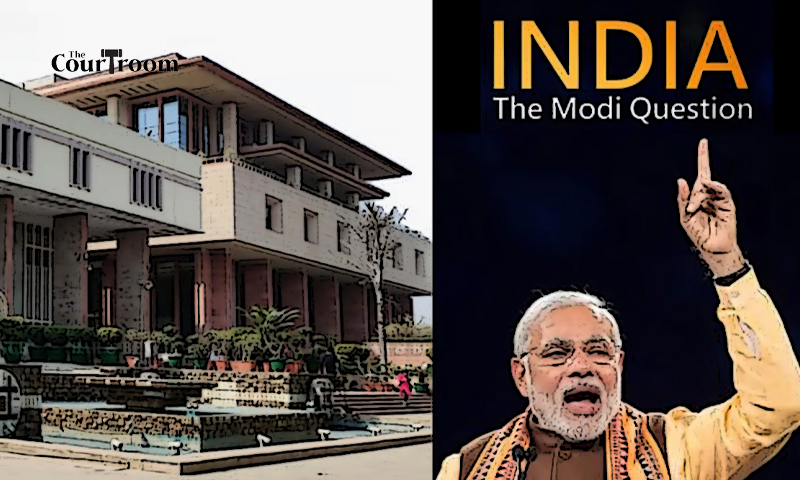Justice Anup Jairam Bhambhani of the Delhi High Court recused himself on Friday from hearing a plea filed by an NGO seeking damages from the British Broadcasting Corporation (BBC). The NGO claims that the BBC’s PM Modi Documentary, “India: The Modi Question,” tarnishes the country’s reputation and contains false and defamatory statements about Prime Minister Narendra Modi and the Indian judiciary.
The court directed that the petition be listed before another bench for a hearing on May 22, subject to the Acting Chief Justice’s orders.
Previously, the high court had issued notices to the BBC in response to the plea filed by Gujarat-based NGO Justice On Trial.
The plea states that the BBC, as the national broadcaster of the United Kingdom, released the documentary “India: The Modi Question,” which consists of two episodes broadcast in January 2023.

The NGO is seeking damages of ₹10,000 crore, claiming the documentary has caused a “loss of reputation and goodwill” to the Prime Minister, the Government of India, the Government of Gujarat (during the period of the Gujarat riots), and the people of India.
The documentary focuses on the 2002 Gujarat riots when Modi was the state’s chief minister. The Indian government banned the documentary shortly after its release.
The plaintiff organization, registered under the Societies Registration Act, 1860, and the Bombay Public Trust Act, 1950, has filed the suit for damages and an Indigent Person Application, allowing a financially incapable person to file a lawsuit.
The NGO contends that the documentary defames the country, making false and defamatory insinuations against the Prime Minister, the Indian judiciary, and the criminal justice system.
The plea argues that the documentary’s “disparaging and defamatory” statements have caused severe and irreparable damage to the reputation and goodwill built by the Prime Minister, the Government of India, the Government of Gujarat, and the people of India.
The NGO has requested damages amounting to ₹10,000 crore, provisionally valued for court fee purposes. The plaintiff has applied under Order 33 Rules 1 and 2 of the Code of Civil Procedure (CPC) to sue as an indigent person, claiming insufficient means to pay the required court fees.
Under the CPC, plaintiffs must deposit a court fee. Order 33 allows those who lack the means to pay these fees to file suits as indigent persons.
Previously, the Centre directed the blocking of multiple YouTube videos and Twitter posts sharing links to the BBC documentary. The Ministry of External Affairs described the documentary as a “propaganda piece” lacking objectivity and reflecting a colonial mindset.
Share your news, articles, deals, columns, or press releases with us! Click the link to submit and join our platform today.


